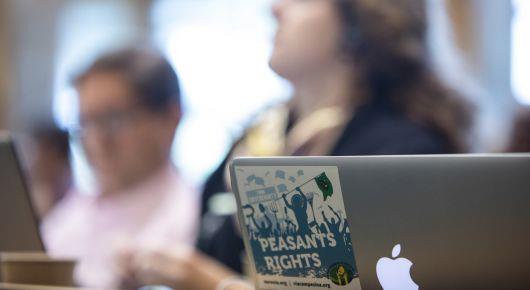Civil society has its voice heard at FAO forum

FAO provided the framework for its civil society partners to gather virtually and discuss striking questions of food and agriculture in Europe and Central Asia. The Civil Society Consultation precedes the European Regional Conference and its main conclusions will enrich the Conference’s sessions.
At the consultation, civil society representatives stressed the need to have better cooperation with rural communities and incorporate a bottom-up approach – the voices of the field – in a more strategic way.
Altogether over 40 organizations, big and small, advocating for smallholders, family farming, better nutrition, peasants’ rights, rural development, and many other issues, participated in the three-day event that concludes today.
“In the last years, the role of civil society as a partner of FAO has been growing; however, this model requires more commitment and efforts on both sides, as well as a change in mindset,” said Darya Alexeeva, FAO partnership officer, when welcoming the participants. “We are already on a good path to make this happen, and FAO will work towards this in the hope that cooperation with civil society will grow even stronger and more sustainable.”
This year, as never before in our lifetime, has shown the need for global solidarity, joint actions, and partnerships. FAO in Europe and Central Asia has been involving civil society not only into its normative policy work, but also in field projects and activities, in addition to high-level dialogues and forums.
“Often, civil society provides a vital link to local communities, who are the ultimate beneficiaries of FAO activities, and provide us up-to-date information for developing more targeted projects and programmes,” Alexeeva added.
At the meeting, the United Nations Decade of Family Farming 2019–2028 was also mentioned as an additional opportunity for FAO and civil society to cooperate and capitalize on each other’s strengths and advantages to the benefit of farmers and smallholders. For example, the implementation of the 17 Sustainable Development Goals requires the involvement and active participation of all actors, with civil society playing a leading role. To this end, civil society representatives called for a transparent and inclusive process.
The Civil Society Consultation is always organized prior to the biennial Regional Conference as an important way to feed civil society inputs into FAO’s work and planning.
23 October 2020, Budapest, Hungary
